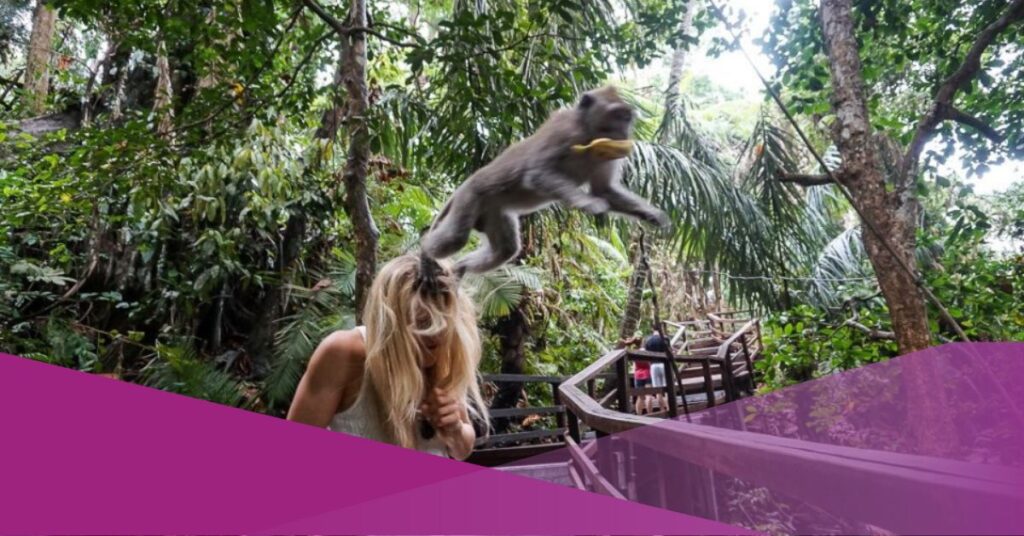Bali, known for its stunning beaches, lush landscapes, and vibrant culture, is a top destination for travellers seeking a tropical escape. However, the paradise comes with a warning for foreign tourists: Beware of stray animals, particularly monkeys. The Indonesian authorities and local experts caution visitors against getting too close to these seemingly adorable creatures, as they can carry life-threatening diseases like rabies.
The Monkey Forest, located in Ubud, Bali, is a popular tourist attraction known for its picturesque beauty and hundreds of free-roaming macaques. While these monkeys can be charming, the recent case of a Melbourne woman serves as a chilling reminder of the risks involved in close encounters with them.
In 2019, an unfortunate incident left a Melbourne woman with traumatic memories and a USD 8,000 medical bill after a monkey attack in the Monkey Forest. The woman had ventured too close to a group of monkeys, attempting to take a selfie, when one of the animals bit her. The seemingly playful encounter took a dangerous turn, leading to severe consequences.

Rabies, a deadly viral disease, is a serious concern in Bali, with stray animals, particularly monkeys, serving as potential carriers. The 2019 incident is a stark reminder that monkey bites and scratches should never be taken lightly. Rabies can be transmitted through saliva, which can be fatal if not treated promptly.
Local authorities and animal welfare organisations have been actively promoting awareness among tourists about the potential risks such as rabies associated with stray animals. They advised visitors to maintain a safe distance from these creatures, avoid direct contact, and refrain from feeding them, as feeding can encourage aggressive behaviour.
To protect visitors and local wildlife, authorities have increased signage and stationed guides in areas where encounters with monkeys are common. Additionally, rabies vaccinations are widely available for travellers at risk of exposure.
Bali’s beauty is undoubtedly enchanting, but travellers must remain vigilant while enjoying their time on the island. The recent incident serves as a sobering reminder that safety should always come first, and respecting the local wildlife is a crucial part of responsible tourism in this tropical paradise.
Interested in this topic? Check out our other articles from Social Expat:
































